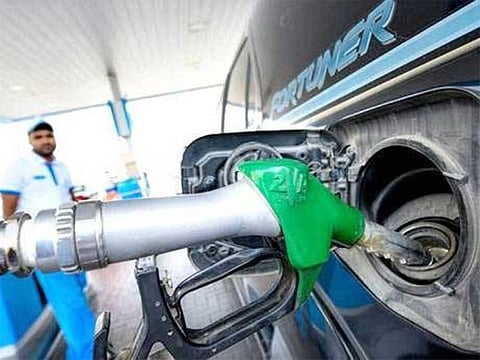UAE petrol prices for November out today: Will it rise or drop?
Traders largely saw oil prices drop this month, but new US developments made them volatile

Dubai: The UAE will announce November fuel prices today and motorists are hoping for relief after October’s increase.
Falling global oil prices and easing geopolitical tensions could pave the way for a drop in pump prices — though much depends on how global markets moved in the past weeks.
October rise
In October, UAE residents saw prices edge up by 7-8 fils for petrol: Super 98 petrol rose to Dh2.77 a litre, Special 95 to Dh2.66, E-Plus 91 to Dh2.58, while diesel inched up to Dh2.71 (from Dh2.66 in September).
Since the country deregulated fuel prices in 2015, monthly adjustments have followed global oil trends — rising when crude costs more and easing when it falls.
Global swings
Brent crude on Thursday traded just below $65 a barrel as the recent Trump–Xi meeting signalled improving U.S.–China trade relations - which analysts say could boost economic activity and oil demand, supporting oil prices through stronger market optimism.
This was days after Brent spiked 5.4% in a single session after new U.S. sanctions on major Russian producers shook the market.
The move sparked the biggest weekly gain since June. Kuwait’s oil minister also hinted that OPEC could increase output if demand rises, warning that oil prices could face upward pressure.
Earlier this month, traders had been expecting lower prices. Signs of a global oil surplus had narrowed the gap between current and future Brent contracts — often a hint that prices could fall. But the new developments quickly flipped that outlook.
What changed?
With supply now expected to tighten, the market moved into what traders call “backwardation” — meaning oil available today became more expensive than oil for future delivery. In plain terms, that’s a sign of short-term price strength.
“Before the sanctions, markets were pointing to lower prices ahead,” said Arne Lohmann Rasmussen of Global Risk Management. “After the sanctions, expectations shifted to higher prices.” Analysts at Capital Economics added that the move could even push the market into a deficit next year if enforcement remains strict.
Motorist impact
Multiple analysts are flagging now that fuel prices are unlikely to spike sharply in the immediate future. If current trends hold, motorists may even see a price dip ahead of slightly higher prices.
Oil prices have remained moderate in recent years, with U.S. crude recently falling below $57 a barrel — the lowest level since early 2021. Despite sharp swings this month, UAE fuel prices are expected to stay mostly stable heading into November. Any immediate changes will likely be short-lived.
Sign up for the Daily Briefing
Get the latest news and updates straight to your inbox




